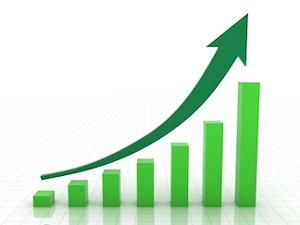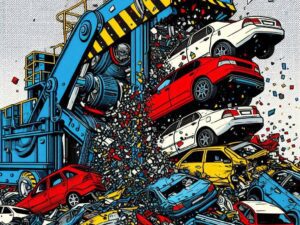Diesel Drivers Are Being Overcharged

According to data from RAC Fuel Watch, diesel prices in the UK decreased by almost 4p a litre in April but remain overpriced by at least 16p. The wholesale market shows that diesel is now 6p cheaper than petrol, with a litre of diesel costing drivers an average of 159.43p on UK forecourts, while petrol remains unchanged at 146.5p for the month.
Although diesel prices have fallen for the sixth consecutive month, the wholesale price of the fuel was cheaper than petrol throughout April, indicating that drivers are being short changed. The motor trade sector will be particularly impacted, as diesel is a primary fuel source for many vehicles.
Wholesale diesel prices plummeted to 104.88p a litre by the end of April, down by 9p during the month, while unleaded was at 111.25p per litre, a 6p decrease.
The exception is Northern Ireland, where diesel averages at 147.47p, making it still 13p more expensive on the forecourt than in the rest of the UK. One well known UK motor trade company believes drivers should be paying a maximum of 143p per litre for diesel.
At the time of writing this article, the cost of filling a 55-litre family car with petrol stands at £80.60, while the diesel equivalent costs £87.69. If diesel were sold at the fair price, drivers could save a significant amount.
Diesel prices are generally higher than petrol prices due to factors such as the refining process, supply and demand, and government taxes.
Diesel requires more steps in the refining process to remove impurities, making it more costly to produce than petrol.
In recent years, the demand for diesel has grown due to the popularity of diesel cars and the expansion of commercial fleets, contributing to higher prices.
In addition to production costs, supply, and demand, government taxes can also play a significant role in the price difference between diesel and petrol. Many countries, including the UK, levy higher taxes on diesel fuel due to its higher emissions, which can lead to environmental issues.
For motor mechanics who work with diesel engines, the higher price of diesel can impact their bottom line as they may need to charge more for repairs and maintenance. In addition, the cost of fuel for their own vehicles and equipment can be a significant expense.
An RAC fuel spokesperson Simon said: “Diesel drivers across the UK mainland continue to lose out badly at the pumps. They’re paying 13p a litre more for the fuel than petrol, despite diesel being cheaper for retailers to buy on the wholesale market for all of April.
“This just isn’t fair for the country’s 12m diesel car drivers. We feel there should be an obligation on retailers to reflect wholesale price movements on their forecourts. Sadly, the only place this seems to happen is in Northern Ireland where a litre of diesel is, incredibly, being sold for 12p less than the UK-wide average.

“Our data shows that the average retailer margin on a litre of diesel is a shocking 22p a litre compared to petrol which is around 8p. The long-term averages for both fuels is 7p which means retailers are making three times what they have in the past for diesel. This is hard for them to justify and equally hard for diesel drivers to swallow.
“Action at a government level is badly needed to stop drivers being ripped off any longer. While we’re not in favour of prices being capped – as we feel this could lead to smaller retailers in rural areas not being able to compete and going out of business to the detriment of the communities they serve. “
“We feel there should be an obligation on the biggest retailers to charge fairer prices in relation to wholesale market movements.”
“We realise retailers need to make a profit but a margin of 22p on every litre of diesel can only be seen as outrageous and a slap in the face to those who depend on it, whether they’re consumers or businesses.”
In summary, the pricing of diesel and petrol is a complex issue that affects the private and motor trade industry. Factors such as production costs, supply and demand, and government policies all contribute to the price difference between diesel and petrol.





